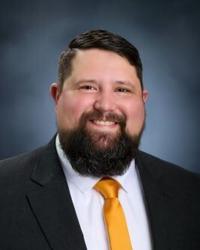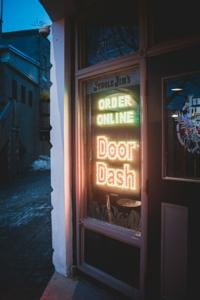(The Center Square) – Two homeless services advocates have asked the Washington State Supreme Court to review lower court rulings which uphold a voter-approved initiative that restricts homeless encampments within Spokane city limits.
A decision is pending on whether the high court will accept the petition for review filed Wednesday by Jewels Helping Hands, a nonprofit that provides support for unsheltered persons, and former Spokane city council president Ben Stuckart, now executive director of the Spokane Low Income Housing Consortium.
Last year, both a Spokane County Superior Court judge and the state Division III Court of Appeals rejected challenges by Jewels and Stuckart over the legality of Proposition 1, a local ballot initiative that bans homeless encampments within 1,000 feet of schools, public parks, playgrounds, and licensed childcare facilities. Violators face potential criminal prosecution.
The measure passed with nearly 75% voter support in the Nov. 7 election.
“It passed every single precinct in Spokane. Why Ben Stuckart and Jewels Helping Hands continue to try to silence our voices is beyond me,” said John Estey, executive director of Clean & Safe Spokane, in a news release Thursday.
In their appellate ruling, three judges wrote that Washington voters have a statutory right “to directly participate in local initiatives (and) courts should be hesitant to frame an issue in a way that strips away this right.”
Proposition 1 was spearheaded by Spokane attorney Brian Hansen and Jonathan Bingle, a businessman and current city council member. They described the initiative as “a step in the right direction to help reduce the dangerous, dirty, and disruptive behavior inherent in homeless encampments around areas where our children learn, play, and grow.”
Hansen, named as a respondent in the lawsuit filed by Jewels and Stuckart, was represented by Seattle attorney Mark Lamb, who is legal counsel for Clean & Safe Spokane.
“Given the well-reasoned decision by the Spokane Superior Court and the Division 3 Court of Appeals unanimously affirming and protecting the rights of citizens to have a say in the safety of their children, we are confident that the State Supreme Court will reject this ill-considered appeal,” Lamb said in Thursday’s statement.
“Further, to be clear, despite the narrative put forth by local media and the City of Spokane, Prop 1 is the current law of Spokane and the City of Spokane is required to enforce the law unless and until the State Supreme Court rules differently on this matter,” Lamb said.
Estey said the respondents have 30 days from the petition filing to submit their own brief to the Supreme Court, which will examine the pleadings before deciding whether to accept the case for review. That decision won’t occur before June, said Wendy Ferrell, associate director of communications for the Administrative Office of the Courts, in an emailed reply Friday to The Center Square. When filing fees are paid, information will be posted the court’s petition review portal.
The City of Spokane, Spokane County, and county auditor Vicky Dalton are also named as respondents in the appeal, but they did not participate in the appellate court arguments in October.
While Proposition 1 calls for restricting homeless populations from places where children may gather, there have been increasing complaints over the city’s sit-and-lie-ordinance voiced by business owners and professionals working near or in downtown Spokane. Others warn that homeless drug addicts are growing more violent and that related problems are spreading throughout the community.
In the petition for review, Jewels attorney Knoll Lowney of Seattle said there have been conflicting rulings in recent years by state courts regarding local ballot measures that criminalize homeless camping. Lowney said a King County Superior Court judge removed a Seattle measure from the ballot because the state’s Homeless Housing and Assistance Act precludes local initiatives.
But two years later, wrote Lowney, the Spokane superior court and Division III appellate court “reached the opposite conclusion, holding that the Homeless Act does not limit the local initiative process.”
If that decision is allowed to stand, Lowney said, initiative efforts to criminalize homelessness “will likely become more common and extreme,” leading to “setting homeless policy by soundbites and politics, rather than evidence and coordination as the Legislature clearly intends.”
To provide clarification, Lowney said the Supreme Court should accept the case for review. He contends allowing a local initiative to override state rules in this instance could also jeopardize other measures - from public health to noxious weed control - that require coordinated planning.
Others have also questioned the initiative’s constitutionality. Spokane updated its municipal code last September in response to a federal court ruling in the case, Martin v. City of Boise, which said camping can’t be prohibited on city property if shelter space is not available for homeless persons. That ruling was upheld by the 9th District Court of Appeals and applies to West Coast states.
But Estey, in his statement Thursday, said “Five different judges have ruled in the favor of the citizens’ right to pass Prop 1 and the citizens sent a resounding message in November.”
Estey described the petitioners as “close allies of Spokane Mayor Lisa Brown” and questioned why the mayor “isn’t … asking her friends to stand down. What more does she need to back her constituents?”
Neither the mayor’s office or Jewels Helping Hands responded to emailed requests Thursday from The Center Square for comment regarding Estey’s assertions.









